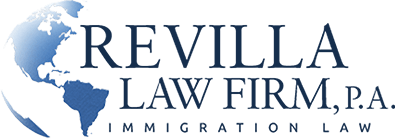WASHINGTON—The 26-state challenge to the Obama administration’s immigration policy, scheduled for Supreme Court argument next Monday comes wrapped in rhetoric about the separation of powers and brims with implications for the November elections.
But the outcome may hinge on something more mundane: Texas drivers license fees.
That is because the states’ legal ability—known as standing—to bring the case rests on Texas’ claim that it would be required to subsidize the cost of licenses to people qualifying for the Obama administration’s plan, called the Deferred Action for Parents of Americans, which would provide work authorizations and a temporary reprieve on deportation to millions of illegal immigrants whose children are U.S. citizens.
Texas charges $24 for a license, but says it costs nearly $200 to process each application. Because immigrants with temporary status can ask for licenses, “Texas therefore would lose millions of dollars if even a small fraction of DAPA-eligible aliens applied for driver’s licenses,” the state said in a legal brief.
The Justice Department counters that Texas has no business being in court at all.
“The cost to Texas of subsidizing temporary visitor driver’s licenses for aliens—is entirely self-generated,” the government said in a brief suggesting that Texas could charge the full cost of issuing licenses. “If such self-imposed harms were sufficient, then states could force disputes over a wide swath of federal policies.”
The Supreme Court has been taking pains to reach consensus decisions following the February death of conservative Justice Antonin Scalia, which left the court with eight justices and increased the chance of 4-4 splits. The standing issue—one of tremendous importance to several of the court’s justices, including Chief JusticeJohn Roberts—could offer an escape route to avoid a potential tie.
“I think this is going to end up being another civil procedure case where we’re talking about what standing means, with nothing to do with immigration altogether,” said Kit Johnson, a law professor at the University of Oklahoma.
Some 4.1 million parents of U.S. citizens and legal permanent residents could benefit from the Obama plan.
Immigrants filled workshops at churches, community centers and schools across the country to learn about the policy after it was announced last year. Among those who attended an information session was a 28-year-old Mexican woman involved in the case and identified publicly as Jane Doe 2. She has spent half her life in McAllen, Texas, where she was brought illegally by her parents.
In an interview, she said she had envisioned “finally”—getting a driver’s license, working legally to support her two U.S.-born young children and living without fear of being deported. Then her hopes were disrupted by the legal challenge, she said.
Two of her brothers are in deportation proceedings, she said. She rarely ventures more than a few miles from her home, to avoid passing a border-patrol checkpoint. “I feel imprisoned,” she said. “I am not a criminal; I’m a hard worker.”
Last year, she and two other immigrants entered the court case on the side of the Obama administration. She said she makes ends meet by doing odd jobs. “I feel frustrated that I can’t take advantage of opportunities here to give my children a good life,” she said.
President Barack Obama’s plan, announced in November 2014, is limited to people with clean records whose children are U.S. citizens or lawful permanent residents. The administration said the program was similar to temporary actions by previous administrations to assist specific alien populations lacking legal status and simply formalizes the discretion the president already holds over immigration enforcement.
A federal district judge in Brownsville, Texas, approved the Texas challenge on the drivers-license basis, and in February 2015 issued a nationwide injunction barring the program’s implementation. Last November, the Fifth U.S. Circuit Court of Appeals in New Orleans upheld the injunction, based on the claim that the Department of Homeland Security failed to follow proper administrative procedures in issuing the policy.
The Texas coalition contends that Mr. Obama acted contrary to federal law. By providing work permits, the administration would create “precisely the sort of magnet for unlawful immigration that Congress sought to avoid,” its legal brief said.
“The job of the president is not to make law,” Texas Attorney GeneralKen Paxton, a Republican, said in an interview. “He is supposed to execute the laws that Congress puts in front of him.”
The GOP-controlled House of Representatives took the unusual step of filing a brief supporting the challenge and the Supreme Court granted it time to argue against the administration next week.
“The executive does not have the power to authorize—let alone facilitate—the prospective violation of the immigration laws on a massive class-wide scale,” the House GOP brief said.
Legal views in the case largely divide on partisan lines. A Democratic-led brief filed by 39 senators and 186 representatives backed the administration, as did another from 16 Democratic-leaning states and the District of Columbia.
Those states argue that Texas provides a “distorted picture” of the immigration plan’s impact at the state level and said the policy would provide “substantial economic, social welfare, and public safety benefits.”
A victory for the administration wouldn’t conclusively determine the lawfulness of the deferred-action plan, but it would allow it to take effect while Texas litigates the matter at a trial court. Secretary of Homeland Security Jeh Johnson said the department is prepared to implement it quickly if the injunction is lifted.
If the court deadlocks 4-4, the lower court injunctions would remain in place, likely freezing the program for the remainder of the Obama administration and into the next presidency.
http://www.wsj.com/articles/key-issue-at-supreme-court-immigration-hearing-drivers-license-fees-1460539801
REVILLA LAW FIRM, P.A.
Immigration lawyers located in Miami, FL
The immigration attorneys at Revilla Law Firm, P.A., represent clients on all immigration matters from family-based residency and removal proceedings, to employment-based immigration cases, and much more. Antonio G. Revilla III is the founder of our immigration firm and is a Former U.S. Immigration Prosecutor with almost 25 years of legal experience. Mr. Revilla and his team of highly qualified attorneys will aggressively represent you and fight to keep you and your family members in the United States.
Contact us today to schedule a free in-office consultation, where Mr. Revilla will thoroughly evaluate your immigration case.
Call (305) 858-2323 or toll free (877) 854-2323
Even though our Miami immigration law firm is located in Miami, we can represent you anywhere in the United States.
You can also email us directly at: info@immigrationmiami.com


